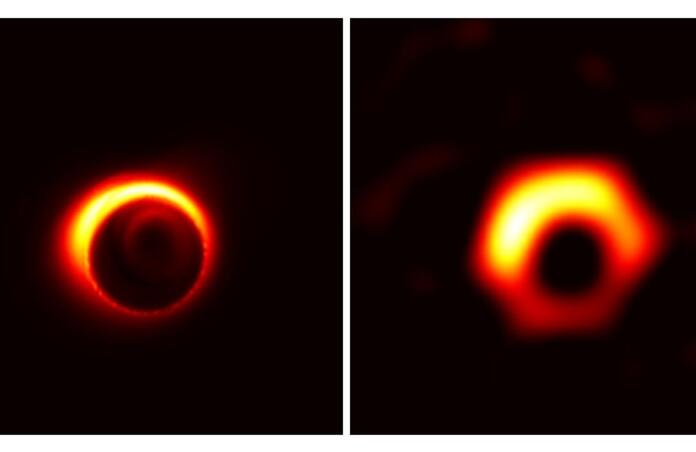A Quick Look at Black Holes

I’ve read an interesting article a week ago about black holes and if a human can potentially enter a black hole and survive it. I thought, I pick this topic up for my monday article in the community.
TO MAKE THINGS A LITTLE CLEARER, WHAT EVEN IS A BLACK HOLE?
• A place in space where gravity pulls so much that even light can’t get out.
• The gravity is so strong because matter has been squeezed into a tiny space. It usually happens when a star is dying.
WHAT’S THE SIZE OF BLACK HOLES?
• Size could vary from as small as an atom with the mass of a large mountain (mass it the amount of matter, or “stuff” in an object)
• To supermassive blackhole with a mass of 4 million suns. (for example: Sagittarius A – center of the milky way.)
HOW DO THEY FORM?
• Smallest black holes formed when the universe began.
• Stellar black holes are made when the center of a very big star falls in upon itself. This will cause a supernova.
• Supermassive blackholes were made at the same time as the galaxy they are in.
Now to the important question:
COULD A BLACK HOLE DESTROY EARTH?
The answer is: No!
- Why? (read below)
• can’t go around space eating stars, moons or planets.
• there is none close enough to our solar system.
• if a black hole the same mass as the sun were to take the place of the sun -> Earth and the other planets would orbit the black hole as they orbit the sun now.
• The sun will never turn into a black hole. The sun is not a big enough star to make a black hole.
I GUESS WE ALL WATCHED SCI-FI MOVIES (FOR EXAMPLE: INTERSTELLAR , MY FAVOURITE) AND SOMETIMES I CATCH MYSELF ASKING WHAT WILL HAPPEN IF WE FALL INTO A BLACK HOLE?
IS THERE MAYBE ANOTHER SIDE?
WILL WE TRAVEL TO A PARALLEL UNIVERSE OR JUST FALL INTO NOTHING?
This blog post was originally published in our Telescope Live Community.
The Community represents Telescope Live's virtual living room, where people exchange ideas and questions around astrophotography and astronomy.
Join the conversation now to find out more about astrophotography and to improve your observation and post-processing skills!
